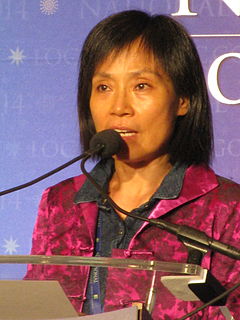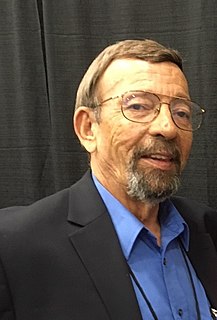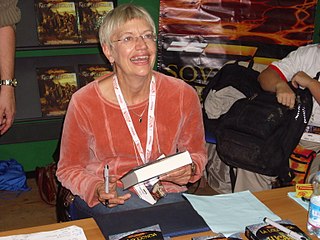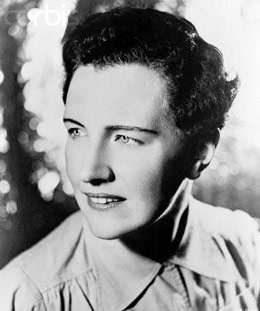A Quote by Anchee Min
I was happy not to be in his place. He could command my death, but not his. But then, what kind of power was his? He was a prisoner of himself.
Related Quotes
Behind the newspaper Julian was withdrawing into the inner compartment of his mind where he spent most of his time. This was a kind of mental bubble in which he established himself when he could not bear to be a part of what was going on around him. From it he could see out and judge but in it he was safe from any kind of penetration from without. It was the only place where he felt free of the general idiocy of his fellows. His mother had never entered it but from it he could see her with absolute clarity.
I had utterly abandoned myself to Him. Could any choice be as wonderful as His will? Could any place be safer than the center of His will? Did not He assure me by His very presence that His thoughts toward us are good, and not evil? Death to my own plans and desires was almost deliriously delightful. Everything was laid at His nail-scarred feet, life or death, health or illness, appreciation by others or misunderstanding, success or failure as measured by human standards. Only He himself mattered.
Under our institutions each individual is born to sovereignty. Whatever he may adopt as a means of livelihood, his real business is serving his country. He cannot hold himself above his fellow men. The greatest place of command is really the place of obedience, and the greatest place of honor is really the place of service.
Strange is the vigour in a brave man's soul. The strength of his spirit and his irresistible power, the greatness of his heart and the height of his condition, his mighty confidence and contempt of danger, his true security and repose in himself, his liberty to dare and do what he pleaseth, his alacrity in the midst of fears, his invincible temper, are advantages which make him master of fortune.
An actor must communicate his author's given message--comedy, tragedy, serio- comedy; then comes his unique moment, as he is confronted by the looked-for, yet at times unexpected, reaction of the audience. This split second is his; he is in command of his medium; the effect vanishes into thin air; but that moment has a power all its own and, like power in any form, is stimulating and alluring.
Socrates was the chief saint of the Stoics throughout their history ; his attitude at the time of his trial, his refusal to escape, his calmness in the face of death , and his contention that the perpetrator of injustice injures himself more than his victim, all fitted in perfectly with Stoic teaching. So did his indifference to heat and cold, his plainness in matters of food and dress, and his complete independence of all bodily comforts.
When a warrior fights not for himself, but for his brothers, when his most passionately sought goal is neither glory nor his own life's preservation, but to spend his substance for them, his comrades, not to abandon them, not to prove unworthy of them, then his heart truly has achieved contempt for death, and with that he transcends himself and his actions touch the sublime. That is why the true warrior cannot speak of battle save to his brothers who have been there with him. The truth is too holy, too sacred, for words." -Suicide (Gates of Fire)
Dr. King kept guns in his home to protect himself and his family. After firebombing and numerous death threats by racists, his application for a permit to carry a gun was denied by the 'may issue' white power structure (Democrat) in that time and place. Let the holiday that celebrates this man’s life include some reflection on the importance of the Second Amendment.
Each man in his life honors, and imitates as well as he can, that god to whose choir he belonged, while he is uncorrupted in his first incarnation here; and in the fashion he has thus learned, he bears himself to his beloved as well as to the rest. So, then, each chooses from among the beautiful a love conforming to his kind, and then, as if his chosen were his god, he sets him up and robes him for worship.






































